Sound and light energy -> meteoroids
Meteoroids
A meteoroid is a small rock or particle of debris in our solar system. They range in size from tiny grains to objects that are several meters in diameter. Meteoroids are the remnants from the formation of the solar system and can be found throughout the solar system. They are commonly composed of rock-forming minerals like olivine and pyroxene, as well as metals such as iron and nickel.
Characteristics of Meteoroids
- Size: Meteoroids can range in size from tiny particles to several meters in diameter.
- Composition: They are typically composed of rock-forming minerals and metals.
- Origins: Meteoroids can originate from comets, asteroids, or even the Moon and Mars.
- Speed: When they enter the Earth's atmosphere, they travel at extremely high speeds, often exceeding 25,000 miles per hour.
Study Guide
Here are some key points to remember about meteoroids:
- What is a meteoroid?
- What are the typical compositions of meteoroids?
- Where do meteoroids come from?
- What happens when a meteoroid enters the Earth's atmosphere?
A meteoroid is a small rock or particle of debris in our solar system, ranging in size from tiny grains to several meters in diameter.
Meteoroids are typically composed of rock-forming minerals like olivine and pyroxene, as well as metals such as iron and nickel.
Meteoroids can originate from comets, asteroids, or even the Moon and Mars.
When a meteoroid enters the Earth's atmosphere, it travels at extremely high speeds, creating the phenomenon known as a meteor or shooting star.
Understanding meteoroids is important in the study of our solar system and the processes that shape celestial bodies. Keep these key points in mind and you'll be well on your way to understanding the fascinating world of meteoroids!
[Meteoroids] Related Worksheets and Study Guides:
.◂Science Worksheets and Study Guides Fifth Grade. Sound and light energy

 Activity Lesson
Activity Lesson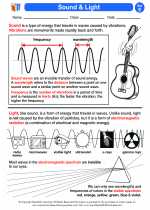
 Worksheet/Answer key
Worksheet/Answer key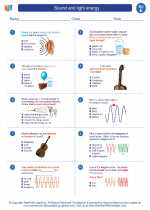
 Worksheet/Answer key
Worksheet/Answer key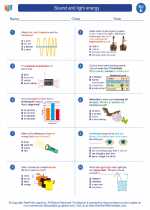
 Worksheet/Answer key
Worksheet/Answer key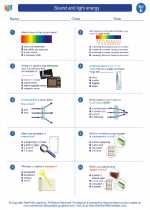
 Worksheet/Answer key
Worksheet/Answer key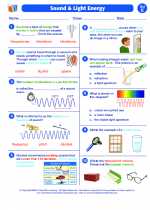
 Vocabulary/Answer key
Vocabulary/Answer key
 Vocabulary/Answer key
Vocabulary/Answer key
